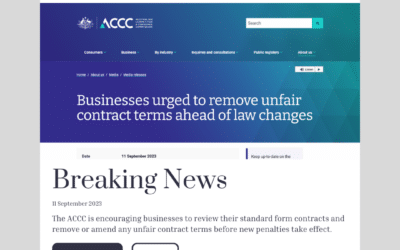July 28, 2023
AI & The Creative Industry Unveiled
We’re living in the era of digital transformation, where artificial intelligence (AI) is infiltrating every facet of our lives. One of the latest frontiers? The creative industries. In this article, we’ll explore how AI is revolutionising these sectors, focusing on its impact on authors and illustrators.
The Dawn of Generative AI
Generative AI, the type that can whip up human like text, is now making waves in the creative world. Some writers and artists have started using AI tools like ChatGPT to inspire their work. But how far does the influence of AI extend? And should we be concerned?
The AI Debate: Tool or Threat?
While some creatives view AI as just another tool in their kit, others worry about the threat it poses to their livelihoods. According to a recent survey by the Australian Society of Authors (ASA), 74% of respondents expressed concern about the potential impact of AI on their careers.
AI and the Creative Process
Despite the apprehensions, a portion of authors and illustrators are embracing AI. But how exactly are they utilising it?
Plotting, Drafting, and More
The ASA survey revealed that those who use AI mainly employ it for brainstorming plot, ideas, characters, and grammar checks. Other uses include generating text or imagery, marketing help, and organising drafts. However, most stated that less than 10% of their final work was AI generated.
The Question of Ownership
The conversation takes a complex turn when we discuss training AI using creative works. This is where things get knotty from a legal perspective.
Training AI: A Matter of Rights
Many publishers are toying with the idea of using authors’ works to train AI. This begs the question: should authors be paid for this? Should they receive credit if the AI generates something new? Unsurprisingly, the creative community largely agrees that they should be compensated and credited.
The Current State of Publishing Contracts
It’s important for creatives to understand the state of their publishing contracts in the face of this AI evolution.
Contracts and AI: The Unknown
Shockingly, 63% of authors surveyed by the ASA were unsure whether their contracts included permissions for AI-related use of their work. This emphasises the need for legal clarity and protection of authors’ rights in the AI age.
The Future of AI in Creativity
While AI hasn’t started penning bestsellers, its influence in the creative realm is undeniable. Here’s what we can expect moving forward.
AI: A Call for Regulation
With the rise of AI, many in the creative industries are calling for regulation and transparency. An overwhelming 92% of ASA survey respondents agreed that there should be a code of ethics in publishing related to AI, and that readers should be aware when AI has created all or portions of a work.
Australia’s Legal Landscape in 2023
In light of these developments, 2023 sees the Australian legal landscape adapting swiftly to the rise of AI in the creative industry. More and more legal practitioners are focusing on AI and copyright law, offering crucial support to creatives navigating this complex terrain.
Conclusion
The integration of AI into the creative industries raises complex questions and concerns. While the technology can aid creatives in their work, it’s also crucial that their rights are protected in the rapidly evolving landscape. The key is to find a balance where AI can coexist with human creativity, rather than replacing it.
Artificial intelligence isn’t going away. As creatives, the challenge is to understand, adapt, and make the most of the opportunities this technology offers, while safeguarding our interests. It’s the next frontier, and we’re in it together.
Source: Australian Society of Authors, ‘AI Survey 2023‘
Image: Midjourney
Frequently Asked Questions
What is generative AI?
Generative AI refers to artificial intelligence systems that can generate data resembling human output. In writing, this means creating human like text.
Can AI write books?
While AI can generate text, it currently doesn’t possess the creative nuance and emotional depth that human authors bring to their books.
How can AI help authors and illustrators?
AI can be used as a tool to aid in brainstorming, grammar checks, text generation and marketing.
Should authors be paid if their work is used to train AI?
The general consensus amongst creatives is yes, they should be compensated and credited for the use of their work in training AI.
What should I do if I’m unsure about AI related terms in my contract?
Seek legal advice to clarify any terms you’re unsure about, especially in relation to AI.
Disclaimer
The material contained in this publication is of a general nature only and it is not, nor is intended to be, legal advice.
🖤💛❤️
AMK Law acknowledges the Traditional Owners of the land on which we are fortunate to live and work. We pay our respects to Elders, both past and present and further acknowledge the important role that Indigenous people continue to play within our communities.

Book Your Appointment
Related Articles
Privilege Under Pressure: Insights from the Optus Case
A Shifting Legal Landscape Today's businesses are under constant threat from cyber attacks, making it increasingly important to understand how they can legally protect their private conversations. Legal professional privilege is a fundamental rule that keeps the...
Ticketek’s $500K Fine: A Legal Perspective on Email Compliance
In the constantly changing world of digital communication, email marketing remains a vital way for businesses to connect with their audience. However, it's crucial to manage this tool with care and attention to legal obligations. The Australian Communications and...
Navigating the Waters of Unfair Contract Terms in Australia
As a small business owner in Australia, you might have come across the recent updates to the Australian Consumer Law regarding unfair contract terms. If it seems a bit complex, don't worry! We're here to simplify it for you in clear terms. Unfair Contract...




